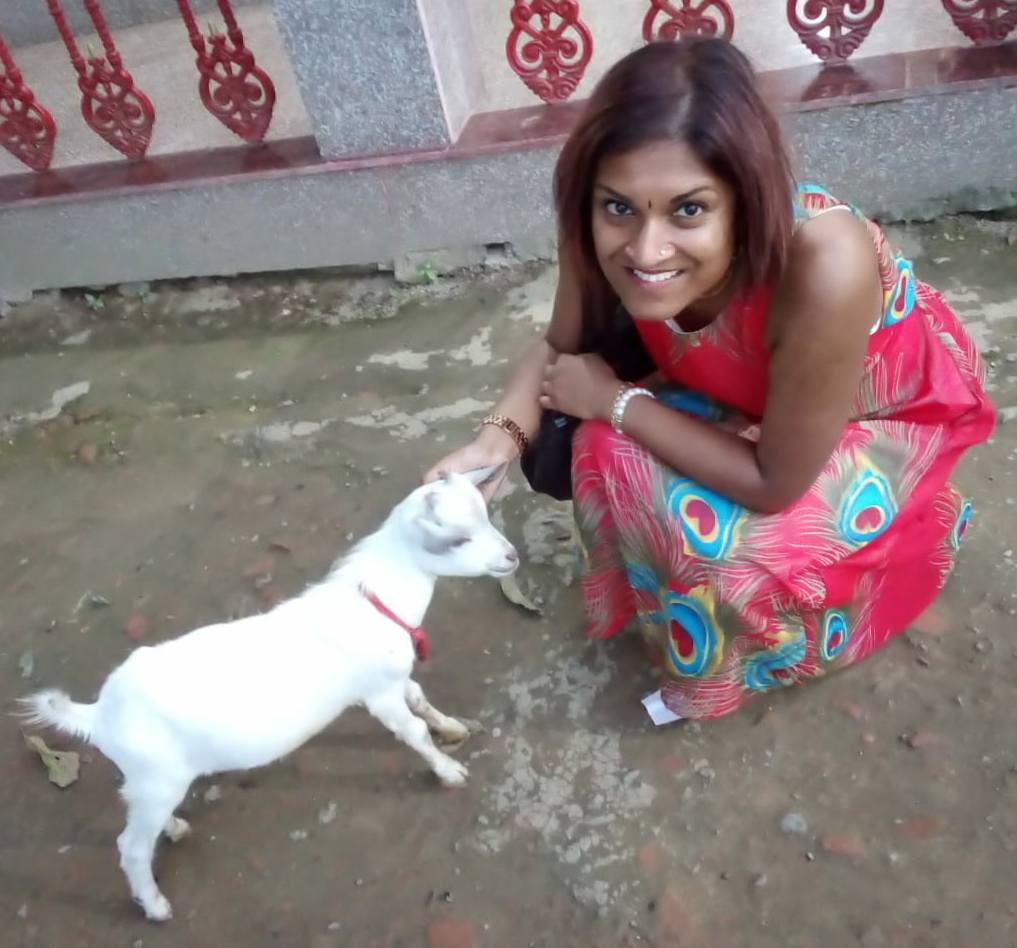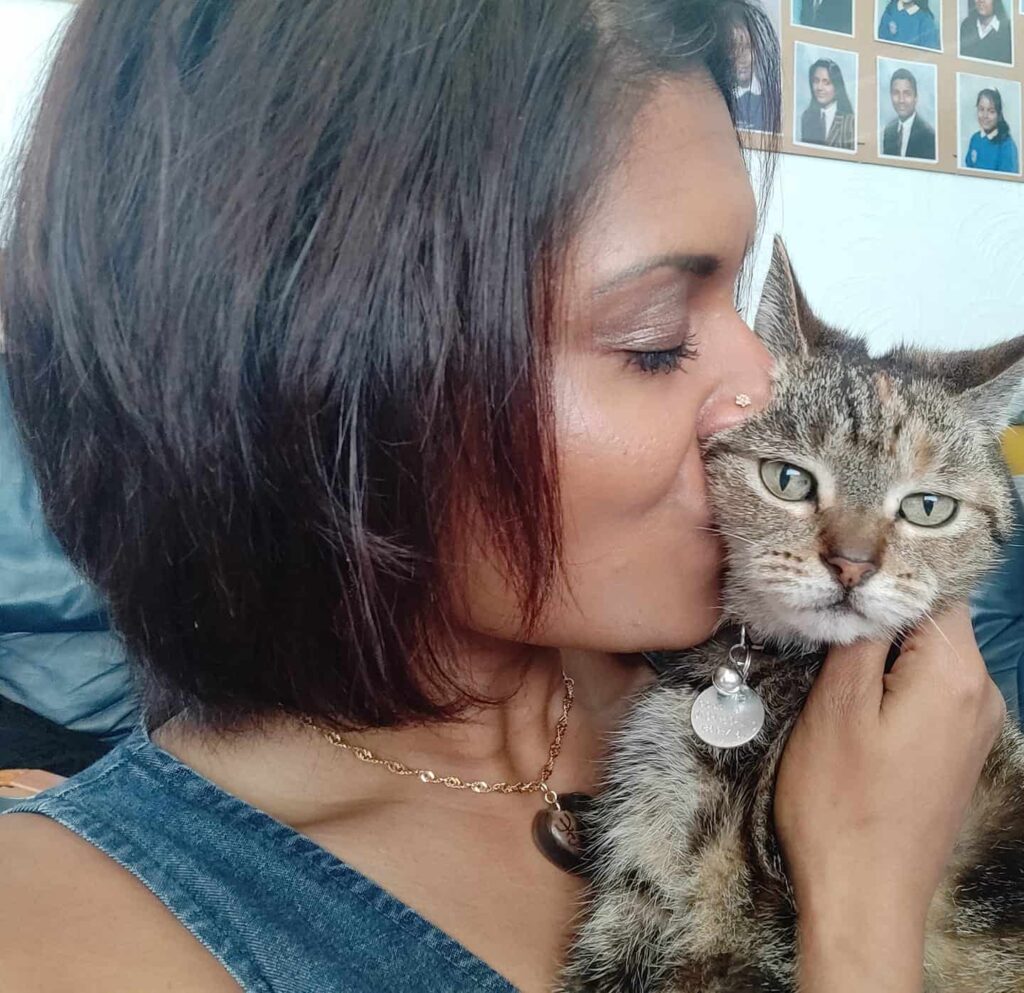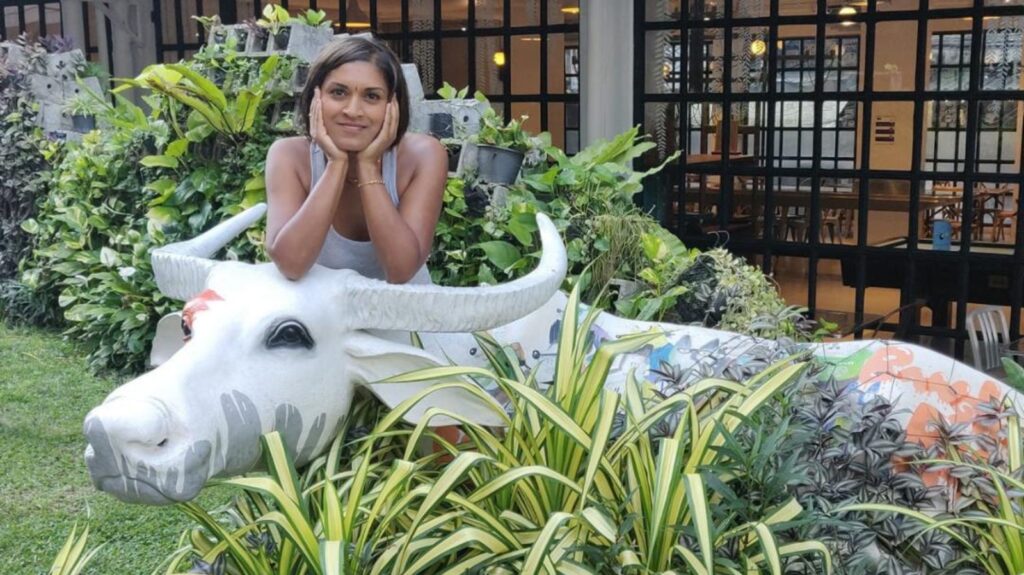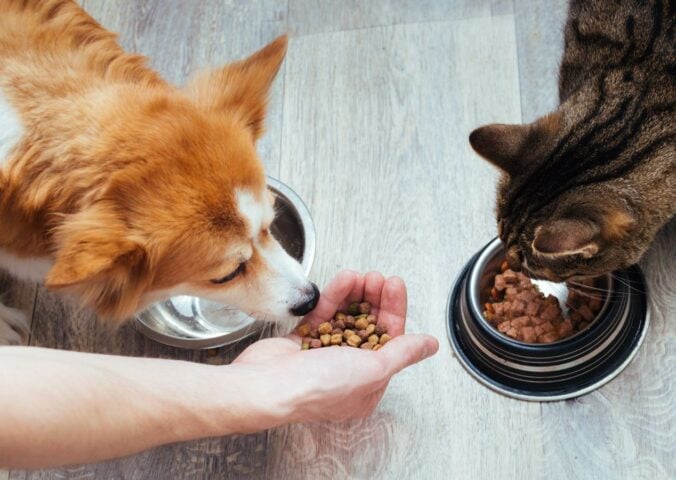I’ve always felt like an outsider.
I grew up in Gateshead in the northeast of England, which is still known as the whitest area of the country. This was the early ’80s when the word “Paki” was used as abundantly as “Hello.”
The racism started on my first day at school. Up until that point, the only language I spoke was Bengali. I was quickly shunned as some weird brown girl who didn’t make sense. I learned to hide in the corner library in the nursery to get away from the looks, laughs, and taunts.
An outsider in my own community
However, the truth is that these feelings of being an outsider started long before my first day at school. I was an outsider within my own community and even my own family.
When I was eight months old, my parents took me to Barcelona. Within a day, I developed a terrible fever. Once it died down, my skin was several shades darker than my family’s.
I was in my 30s when I discovered my mother had left me in the sun too long on that fateful day, and I’d suffered heatstroke. In her defense, most people were not aware of the dangers of the sun back then.
Now much darker than the rest of my family, my parents would hear comments from various “aunties” and “uncles” about how difficult it would be for them to get me married. By the time I was a toddler, I already felt like I didn’t belong in my community or family.
Looking back now, I’m astounded by the cognitive dissonance. If you’ve watched the 2006 movie This Is England you’d have an accurate depiction of what life was like in the ’80s for ethnic minorities who were routinely targeted by white skinheads.
You’d think my own community, who knew what it felt like to be outsiders, taunted and intimidated by natives for attributes they cannot control, would be sympathetic to me. Unfortunately, they didn’t make the connection – in the same way a vet doesn’t see any hypocrisy in saving a dog’s life while eating a bacon sandwich.

Eating meat to fit in with white people
My family and I were Hindu and therefore vegetarian. The school canteen had no vegetarian options. My siblings and I were the only children who went home for lunch. The food itself made me feel like an outsider.
When I turned 13, my parents felt I was old enough to decide whether I remained vegetarian or chose to eat meat. Within an hour, I’d eaten a Big Mac.
I don’t remember being curious about the taste of meat. I ate that burger because it made me feel less of an outsider. Eating meat made me feel like I could fit in with white people.
Addicted … to drugs and to fitting in
That feeling of “achievement” would become my downfall. I’d become obsessed with fitting in. When I left for university and fell in with a group of students who liked taking recreational drugs, I’d inevitably join in.
As with the burger, I don’t remember any desire for speed or ecstasy. I still get asked if I ever feared the consequences of drugs. I didn’t. All I saw was my route to fitting in.
I used recreational drugs so often that my university kicked me out and I lost my place in the halls of residence. I ended up on the streets and then in a homeless shelter. But I was too ashamed to go home and face my parents’ disappointment.
None of this mattered. The sad reality was I was addicted to something far more addictive than drugs – the feeling of belonging.
Getting clean was tough, not just because of the physical withdrawals, but the reappearance of those old feelings of being an outsider that the drugs masked.
Rescued by a cat called Isha
In 2010 I rescued a cat called Isha from a local shelter. When Isha came into my life for the first time, I could see the connection between my experiences and what she had experienced in her short life.
As a non-pedigree tabby and the runt of her litter, her market value was low. She was abandoned for attributes that she had no control over, much like I had no control over my skin color or race.
I also realized how lucky she was as a cat in a country where she was classified as “pet” and not “food,” much like how my race worked for me when quotas needed filling.
This cat had such a profound effect on me. Over the next couple of years, she helped me open my eyes to the speciesism inherent in our society and turned me vegan. I may have rescued her, but she also rescued me.

Writing my way to success
Books have always been a solace for me. Those times hiding in the library as a young child seeded my love of reading and writing. When I was 16, I won a scriptwriting competition and co-wrote an episode of Brookside.
Due to my addiction and losing my place at university where I was studying media, my professional journey has been diverse, including working in the National Health Service and Her Majesty’s Prison.
But I found my way back to writing and have forged a successful career as a content writer, copywriter, ghostwriter of seven nonfiction books, and now as a book consultant and publisher.
Turning racism and colorism into opportunity
Unlike in my childhood, I’ve witnessed how my skin color and race could sometimes be advantageous throughout my career. Twice I was informed that my race – not my abilities – was why I was selected for top positions. I’ve also lived in communities where I was relatively light-skinned compared to others and therefore deemed attractive.
Ten years ago, after becoming vegan, I finally started to appreciate my experiences with racism and colorism. They were designed to help me intimately understand how it feels to be boxed up, labeled, and reduced to one or two attributes.
I learned to love my most painful experiences as they set me on my current trajectory as The Vegan Publisher with a mission to empower vegan experts, influencers, C-suite executives, and entrepreneurs to end the exploitation of animals, humans, and the environment, one book at a time.
So thank you to all those who called me “Paki,” who advised me to use whitening creams and gleefully informed me I’m only there as a box-ticking exercise. You’ve unleashed a vegan monster.
Now, I don’t need to fit in, because, in the wise words of Dr. Seuss, I was born to stand out.
Mitali Deypurkaystha is a book consultant and founder of The Vegan Publisher specializing in business books for vegan and plant-based entrepreneurs, experts, consultants, and C-suite executives. Her new book, The Freedom Master Plan: Put Your Mission, Movement, and Message on the Map, details proven book writing and leveraging strategies that dramatically increase profits and build additional income streams so vegan businesses thrive.






